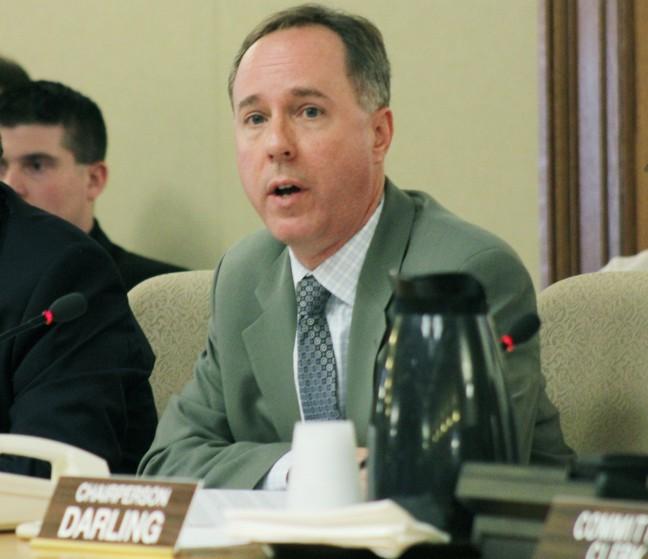Wisconsin’s roads are in need of an urgent makeover.
A lack of funding has led to some of the worst quality road systems in the nation. According to UW Department of Transportation records, 71 percent of Wisconsin roads are in “poor or mediocre condition,” the third highest percentage in the country, trailing only Illinois and Connecticut.
Solutions to this problem have merely been to delay projects and borrow money due to an opposition to additional taxes and fees to pay for roads, leading to the transportation budget accumulating a $1 billion deficit. Last year, Gov. Scott Walker wanted to borrow $1.3 billion to finance these delayed projects, but the Republican Legislature only approved $850 million in bonding.
This is the path Gov. Scott Walker wants to continue down in his proposed 2017-18 transportation budget. The proposal would cut $447.4 million from state highway programs but transfer some money to maintenance efforts and local governments to fix up the roads.
But some state legislators are finally speaking out against Walker’s disastrous budget proposal.
Members of the Wisconsin state Assembly unveiled September 7 their plan for the upcoming legislative season. Called the Forward Agenda, this collection of proposals contains broad goals for a range of topics, including transportation.
I am extremely proud of Assembly Speaker Robin Vos, R-Rochester, Majority Leader Rep. Jim Steineke, R-Kaukauna, Joint Finance Committee Co-Chair Rep. John Nygren, R-Marinette and Assistant Majority Leader Dan Knodl, R-Germantown, who called out Walker for this disastrous proposal. They said in a joint statement, “This budget request falls short of addressing the long-term funding crisis in our transportation budget. It is a political solution, not a real solution.”
Real solutions, if you’re wondering if anyone in Wisconsin’s state government has them, are found in the Forward Agenda. Vos and the other Assembly Republicans who authored this document have recognized that recklessly borrowing to fund roads is only going to lead to problems for future Wisconsinites.
What’s going to fund our roads in the future is an increase in the gas tax or establishing a tollway, like Illinois. All public agencies in Illinois are bleeding except for one state agency that is posting record high profits, the tollway. Illinois’ toll system generated $1.4 billion in 2015, with this money going to repairing major roadways and bridges. This record-setting number has allowed for that state to continue with huge road projects, like the tollway’s 15-year, $12 billion program renovating some of Illinois’ most used roads.
Yes, Illinois’ roads are terrible, but that is because of the ineptitude of their state government. But the point is that tollways can generate a ridiculous amount of money, and money is what is most needed at this point in time to help repair Wisconsin’s roads.
The other option to fund our roads is the gas tax, which is long due to be raised. Wisconsin’s drivers pay, on average, a 61 percent lower gas tax than our four neighboring states. Recent history suggests that a tax on oil wouldn’t put too much of a burden on consumers. The price of oil has precipitously dropped since June 2014, when a barrel of oil cost $105.54. The price of a barrel of oil in August 2016 was $43.98. No gas tax would ever raise prices to those 2014 levels. In fact, it would only cost the average Wisconsinite $10 for the entire year.
That $10 would actually saving you money, given that the average Wisconsin driver currently spends $281 annually for extra vehicle repairs and operating costs due to driving on roads in need of repair.
Though these are proposals that must be implemented, I doubt they will be. The fact of the matter is that Walker is completely opposed to raising taxes in any way, even if it’ll benefit all of us in the long run.
Aaron Reilly ([email protected]) is a sophomore majoring in social work and economics.














